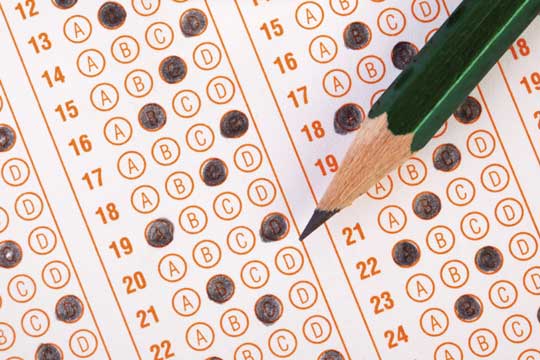 All parents want the best for their Precious Jewels.
All parents want the best for their Precious Jewels.
We want them to be healthy and happy as they grow toward adulthood. We want all doors open to them as they develop. We expose them to various life experiences, and we do our best to position them for success. We cheer them along the way to help them and others see them in the most positive light.
But sometimes some of us go too far in helping our children. Some of us cross the line between encouragement and manipulation, even cheating. The college admissions scandal uncovered this month displays that and more, undermining trust in our nation’s higher educational institutions and sending all the wrong messages.
The broad facts are these. Somewhere around 50 people, some famous and some not, allegedly participated in a plan to cheat on tests and misrepresent the academic and athletic achievements of high school students to get them into at least eight prestigious universities, including Yale, Stanford, Georgetown, and one of North Carolina’s own, Wake Forest. Thirty-three parents so far face federal charges in the scandal, and the institutions involved have been publicly compromised. At a time when colleges and universities are in the thick of the admissions process, they now have to weed through for unqualified applicants seeking unfair advantage.
Even preschoolers know it is wrong to break into line ahead of those who arrived first, and that is what happened here. Movie stars and other designing parents paid for their children to move to the head of the line and made headlines.
But the trouble is much deeper than that. This type of situation allows children of profoundly advantaged people entry into academic environments for which they are very likely unqualified, displacing other students who are qualified, ready and eager to excel. Whether some students — or people acting on their behalf — cheated on tests, lied about athletics or simply paid to move to the top of the lists, the bottom line is that the ones who succeed with deception very likely displace truly qualified applicants.
We will never know how many students moved from the front to the back of the applicant queue at some of our nation’s finest universities, and those students may never know either. But it is safe to say that the lives of the unqualified students who were accepted into those universities through deception, and the qualified students who were kicked to the curb, have been changed in ways that will resonate throughout their careers and private lives.
Some students apparently knew about the cheating at the time and some did not, but either way, they now know they were likely not qualified for their universities, and they may struggle with academic rigor. They have learned their parents cheat. Those who knew they were qualified may always wonder why they were turned away.
Individual lives — those of parents, students, university personnel — have veered way off course, but the damage is far greater than those individuals alone. Institutions of higher learning, long held in high public esteem, have been compromised. We know now that ivory towers, whether the ones now in the public spotlight or others, are not pure — that money talks in those hallowed halls just as it does in lesser places.
We know now that very little separates higher education from business, politics and other institutions in our culture.
It is enough to make even Pollyanna cynical.